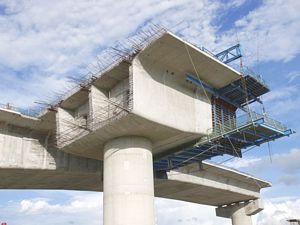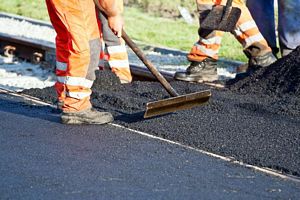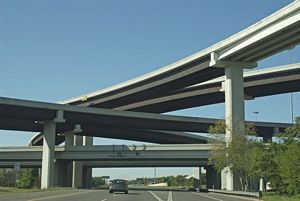|
By accessing or using The Crittenden Automotive Library™/CarsAndRacingStuff.com, you signify your agreement with the Terms of Use on our Legal Information page. Our Privacy Policy is also available there. |

Every Day Counts delivers projects--and transportation results--sooner
|
|---|
|
|
Every Day Counts delivers projects--and transportation results--sooner
Fast Lane
U.S. Department of Transportation
October 23, 2012
Improving our nation's roads and bridges is one of the most important jobs we do here at the Department of Transportation. But we're always looking to do that job better, and that's been the mission behind the Federal Highway Administration's
Every Day Counts initiative since 2009: better, faster, and smarter project delivery.
And that means
better, faster, and smarter delivery of the benefits those projects bring to motorists, truck drivers, and everyone else who uses our roadways.
Last week, FHWA Administrator Victor Mendez and Deputy Administrator Greg Nadeau kicked off a series of regional summits on Every Day Counts that continues today in Detroit. The EDC initiative supports the implementation of planning, permitting, design, and construction innovations that have a demonstrated ability to build highway and bridge projects faster. Many of these techniques also offer other big benefits, like enhanced project safety, better infrastructure quality, and less impact on the driving public during construction.
In many cases, EDC also makes infrastructure less costly. For example, the
Fast 14 project to replace 14 different bridges on I-93 in Medford, Massachusetts, in a single summer--with just 10 weekend-only road closures--prevented four years of traffic tie-ups and delays. Believe me, that adds up to a lot of hours saved for area commercial drivers.
Reducing construction time also reduces costs. According to an FHWA cost study, the combination of Prefabricated Bridge Elements and Systems--an EDC technique--and EDC contracting strategies saved $30 million in just nine bridge replacement projects across the country.
These regional summits, which will take place across the country in the coming weeks, focus specifically on the
second round of EDC technologies that FHWA rolled out this summer. From innovative construction management techniques to paving machinery that uses GPS technology, our second round of EDC innovations offers new approaches to produce higher quality, longer-lasting highways.
FHWA is promoting these innovations to state, local, and regional transportation agencies, and also to the design and construction industries--the people on the front lines of project delivery. By bringing local decision makers and contractors together with our FHWA team to talk about the latest Every Day Counts approaches, we're helping them make informed choices about which of these innovative strategies makes sense for the communities they serve.
EDC elements have the ability to be tailored to the needs, laws, and regulations of each state, and this flexibility is delivering big results. Since FHWA launched Every Day Counts in 2010, every state transportation agency has applied one or more of the technologies, and many of those innovations are now widely used.
The program has been such a success that even Congress took notice. The transportation bill President Obama signed this summer, MAP-21, includes several Every Day Counts techniques and complements a number of others.
Every Day Counts is about a lot more than just completing road and bridge projects more quickly. It's about changing the culture of the transportation community so that it embraces innovation as the standard way of doing business. And that innovation means bigger benefits for the people we're committed to serving: the traveling public.


















 Topics: Federal Highway Administration
Topics: Federal Highway Administration



